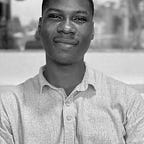Cognitive biases (Critical thinking)
Still on our first milestone project at GemMine and here is the second article. This project is based on critical thinking but in this case, it is focused on biases. We were provided a YouTube video that talked on biases and we were told to write on the bias(es) which we’ve been a victim of and how we can avoid these biases in future.
The youtube video consisted of 12 cognitive biases and each of them were well explained. From this 12 biases, yeah, I’ve been a victim of some (not much though😁)
- Anchoring Bias — This is a situation where a person completely relies on the first information received no matter how relevant that information may be when you take decisions. I have been a victim of this quite a number of times and while watching this video, it was as if they were just trying to attack me 😒🚶♂️. A very good example that was given in the video was that supposing you go to buy a car and you then ask for the price, you were told that the price is #200,000. You left and came back later and the price changed to #150,000, you’re happy because that is a good deal and you’d want to jump on it. He then flipped the switch giving another illustration of the price of the car increasing to #300,000 then you don’t feel too good, this is because of the Anchoring bias, you have in your mind focused on the first information you received thinking that nothing will change. From what I understand, don’t rely solemnly on the first information you receive because information changes every time just the same way you grow from being a boy to a man.
How can I avoid this bias in the future?
Not relying or taking in information as it is. Always have it in mind that things can change from time to time and relying on just a particular information thinking that it cannot change can be an issue later on.
Always be prepared and ready for change. It could be good or bad but it wouldn’t come as a surprise because you’ve already planned ahead.
- Availability Heuristics Bias — This is over estimating the importance of the information you have because people don’t make decisions on facts and statistics but from news, stories from people and stuff they hear. What does this mean? This is just a situation where you carry out a decision or estimate on something based on what you heard from people or news and not based on actual research and facts. Although it is good to know and gain knowledge from people but at the same time do your own background research and know the true facts about that thing. If what a person tells you is wrong, you also will be carrying wrong information wherever you go which will lead to everyone having a wrong mindset about that particular information.
How can I avoid this bias in the future?
Knowing the facts about a particular information and not just based on information from news, stories and so on. We all know that most times the news is wrong. Not everything is passed across and that is misleading. To avoid something like this, think critically, can this be true? Are these assumptions right? That way you will be able to know what’s wrong and what’s right.
- Placebo Bias — This is when you believe in something and that thing actually happens. You’ll see that people who think positively usually have a positive life because of the mindset they carry. The way you think matters a lot, if you carry a negative mindset then obviously that is not so good.
There you have it, cognitive biases that I’ve been a victim of and how I would avoid them in the future. What do you think about this article? Let me know in the comment section.
Also, if you wouldn’t mind talking about biases that you’ve been a victim of and how you plan on avoiding them, I would love to hear from you. Thank youuuu.
